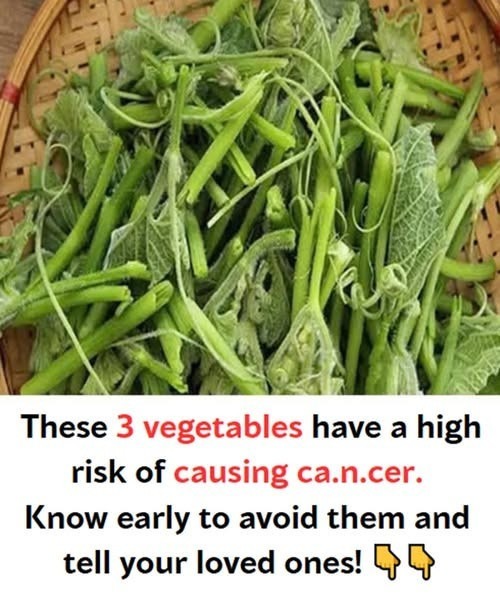ADVERTISEMENT
✅ Choosing fresh, properly washed produce
✅ Storing vegetables safely
✅ Avoiding excessive salt or fermentation
✅ Cooking them in healthy ways (steaming, boiling, stir-frying with minimal oil)
How to Protect Your Family from Misinformation
Posts like the one shown in the image often use sensational language to drive clicks or sell unverified “detox” products. Always ask:
Does the post cite any medical or scientific source?
Are claims supported by studies from trusted health organizations?
Is the content designed to scare rather than inform?
When in doubt, cross-check with trusted sources like:
World Health Organization (WHO)Buy vitamins and supplements
American Cancer Society
Mayo Clinic
Harvard Health Publishing
Conclusion: The Real Danger Is Not the Vegetable, But the Misinformation
Although it’s essential to stay informed about food safety, it’s even more important not to fall for panic-based posts. Vegetables are, without a doubt, among the healthiest foods one can consume.
Instead of avoiding certain vegetables based on rumors, focus on:Buy vitamins and supplements
Proper sourcing and cleaning
Balanced cooking methods
Moderation in pickling and preserving
Safe food storage
Critical thinking when reading health posts online
So the next time you see a scary post telling you to avoid “3 cancer-causing vegetables,” take a deep breath, check the facts—and then go enjoy a healthy, colorful salad.
ADVERTISEMENT
